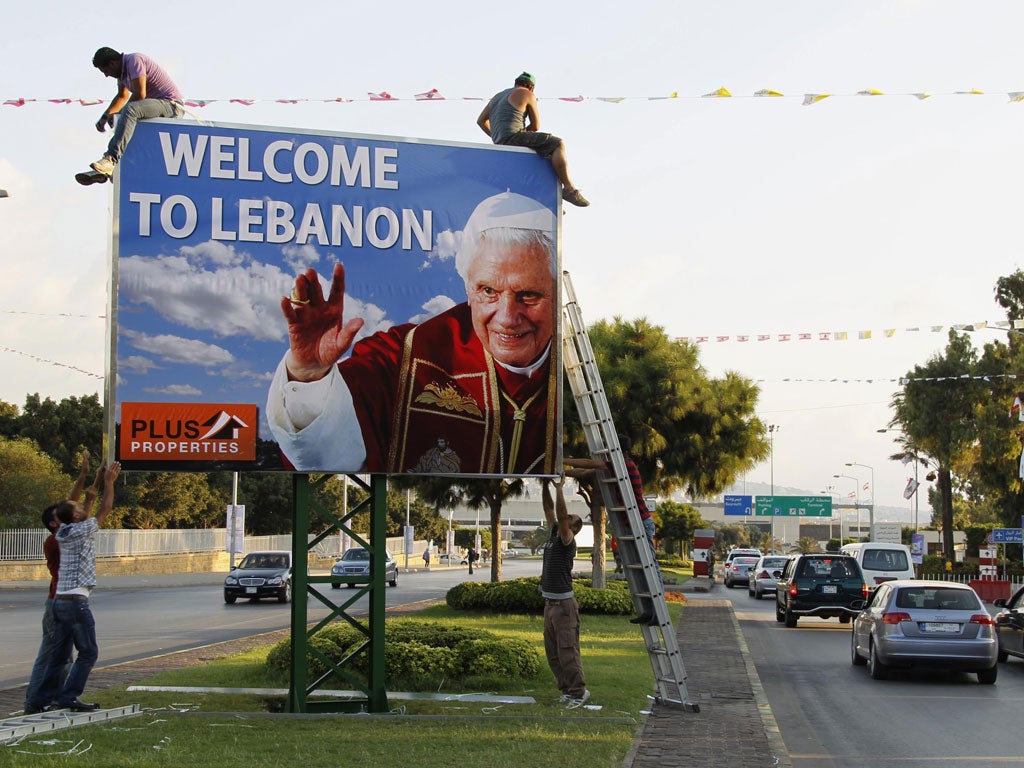Your support helps us to tell the story
From reproductive rights to climate change to Big Tech, The Independent is on the ground when the story is developing. Whether it's investigating the financials of Elon Musk's pro-Trump PAC or producing our latest documentary, 'The A Word', which shines a light on the American women fighting for reproductive rights, we know how important it is to parse out the facts from the messaging.
At such a critical moment in US history, we need reporters on the ground. Your donation allows us to keep sending journalists to speak to both sides of the story.
The Independent is trusted by Americans across the entire political spectrum. And unlike many other quality news outlets, we choose not to lock Americans out of our reporting and analysis with paywalls. We believe quality journalism should be available to everyone, paid for by those who can afford it.
Your support makes all the difference.The civil war in Syria has given a sense of urgency to Pope Benedict XVI's trip to Lebanon starting today, a mission he describes as a pilgrimage of peace for the entire region.
Nearly 40 per cent of Lebanon's four million people are Christian, making it the most Christian nation in the Middle East. The Pope's three-day visit coincides with a visit to Syria by the United Nations-Arab League mediator, Lakhdar Brahimi, who arrived in Damascus yesterday, where he is expected to meet President Bashar al-Assad.
Fears are rife that Syria's conflict might spill over to Lebanon. Clashes in Lebanon between Syrian groups over the past months have claimed more than two dozen lives and left scores of wounded – and the Christian community in Lebanon is torn between supporters and opponents of Mr Assad. Among his defenders is Michel Aoun, the former Prime Minister and army commander. He is a strong ally of Hezbollah, which is labelled a terrorist group by the US but is the country's most powerful military and political force. Hezbollah's leader, Sheikh Hassan Nasrallah, welcomed the Pope's visit, describing it as "extraordinary and historic".
Lebanese authorities have imposed strict security measures, suspending weapons permits except for politicians' bodyguards and confining the visit to central Lebanon and the northern Christian areas.
Several Arab countries, including Saudi Arabia and Qatar, have recently urged their citizens not to visit Lebanon because of the recent violence.
The government has declared tomorrow an official holiday in Pope Benedict's honour, however, and given the day off to tens of thousands of workers and students so that they can greet him.

Join our commenting forum
Join thought-provoking conversations, follow other Independent readers and see their replies
Comments